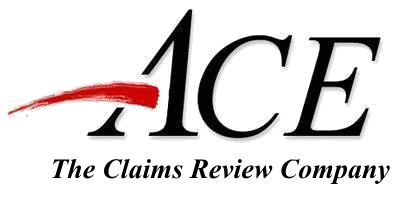
|

|
FAQ & Answers
AutoReview FAQ
We are not appraising damages. We are judging the fairness and accuracy of the estimate submitted, so that's all we need to see.
With an average of seventeen years experience, our licensed auditors evaluate the damage estimate and apply parts pricing and procedure times contained in Mitchell's UltraMate estimating software. On occasions in which damages do not match the description of loss, we will suggest a visual inspection.
No, that would present our auditors with a fundamental conflict of interest. Other companies have what initially sounds like a great marketing angle: "If we do not at least save the amount of our fee, there's no charge!" However, this betrays a lack of understanding of the whole process. Our auditors are not shooting for net savings, they are auditing estimates for fairness and accuracy. When ACE pronounces an estimate fair and in line you can pay it with peace of mind, which is a service rendered in and of itself.
Yes, and we fax the shop a copy of our audit.
Our toll free number on the audit allows the shop to contact us in order to submit them, or to ask any questions. Shops are required to notify us of supplemental damage prior to making the repairs.
PropReview FAQ
We are not writing an estimate, we are auditing contractors' estimates for correct scope of repairs, materials, and pricing. Relying on our extensive experience and knowledge of the industry, we discuss the repairs and reach an agreed cost of repairs with the contractors.
Through our discussions with the contractors, and with the aid of photographs when necessary, the general condition of the property is determined. Betterment is taken according to policy and customer guidelines.
We use Xactimate for unit cost pricing, which is accepted throughout the industry.
These issues are addressed during our conversation with the contractors subject to final review and approval by the adjuster.
SubReview FAQ
If he overpaid in good faith our customer is under no obligation to compound that mistake by repeating it. The respondent is also responsible to act in good faith on the part of his policy holders and/or stock owners to make due diligence not to overpay for anything. The applicant should approach the vendor that overcharged and demand reimbursement. For instance, one applicant paid $950 for a $9.50 headlamp relay, another paid $280 an hour for labor instead of $28, easily recoverable overpayments.
If the applicant paid the wrong prices for parts, passed on math errors, allowed unspecified "lump sum" payments, failed to account for overlap, etc., then seeing the vehicle has proven not to be the chief criterion for writing an accurate estimate or appraisal.
We settle over 90% of the files we are asked to settle with applicants, and the few that go to arbitration are increasingly seen to be the result of justifiable exceptions being taken by the respondents.
